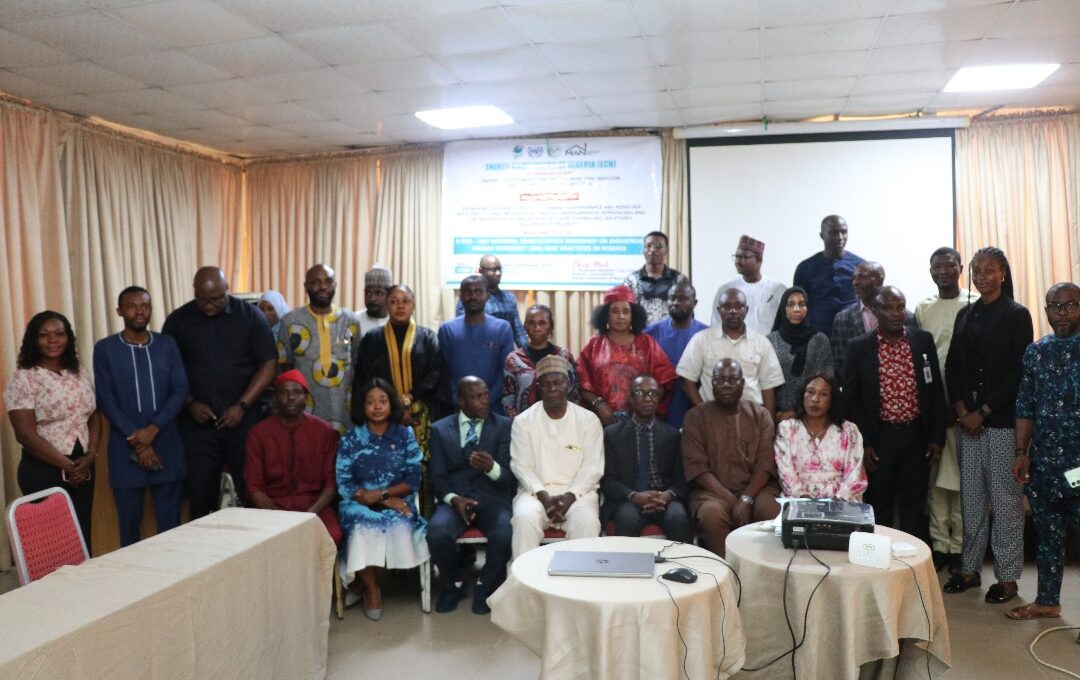Over 40 percent of industries operating in some selected States in Nigeria have abandoned national grid due to unreliable power supply, Industrial Energy Consumption Survey has said.
The survey was developed by Energy Commission of Nigeria, in partnership with United Nations Industrial Development Organization (UNIDO).
Engr. Okon Ekpenyong, Industrial Energy Efficiency Consultant to Energy Commission of Nigeria(ECN), disclosed this in Abuja while presenting UNIDO–GEE IEE Policy and Regulations Project: Key Achievements and Lessons Learnt at a One – Day National Sensitisation Workshop on Industrial Energy Efficiency and Best Practices in Nigeria.
According to him, the working group conducted survey using questionnaire in Lagos, Ogun, Abuja, Kaduna, Kano, Port Harcourt, Warri and Onitsha.
He said there was 300 per cent increase in electricity tariffs, as unit price moved from 69.75 in 2023 to 209.5 in 2024.
He noted that there was over-dependence on diesel and Compressed Natural Gas(CNG) by these industries, adding that about 76 percent of these industries were on estimated electricity billing.
Speaking further on the findings of the survey, he said about 76percent of the industries surveyed were not aware of ISO 50001 Energy Management Standards, as 90 percent of them had no energy policy, aimed at minimising energy wastages
He said:”Over 45 percent were ignorant of simple House-Keeping Energy Saving measures.”
He identified too many policymakers without synergy leading to policy inconsistency; difficulties in getting industries to embrace Industrial Energy Efficiency and ISO 50001 due to their limited knowledge of its benefits as well as limited database of existing and operational industries for mapping as some of the challenges militating against IEE.
Dr Mustapha Abdullahi, Director General/Chief Executive Officer of Energy Commission of Nigeria, in his welcome address, said the Workshop was part of the implementation of a Global Environment Facility (GEF)’s project entitled, “Improving Nigeria’s Industrial Energy Performance and Resource Efficient Cleaner Production through Programmatic Approaches and the Promotion of Innovation in Clean Technology Solutions (NIG IEE/RECP Project) anchored by the United Nations Industrial Development Organization (UNIDO).
He explained that the project was aimed at accelerating the adoption of IEE and improving enterprise environmental performance through Resource Efficiency and Cleaner Production (RECP) best practices in Nigeria.
According to him, “Under this project, the Energy Commission of Nigeria is implementing the Industrial Energy Efficiency (IEE) component focused on “strengthening National Industrial Energy Efficiency (IEE) Policies and Regulatory Frameworks towards the adoption of UNIDO’s Energy Management Systems Standards (EnMS/ESO/ISO 50001) in Nigeria”.
He said that in an era of high energy pricing and subsidy removal, there was need for Nigerians to avoid energy wastage as much as possible.
He further underscored the need for energy efficiency and conservation best practices, explaining that “Energy efficiency is a way of managing energy consumption through efficient end-use technologies and practices that minimise wastes; resulting in using less energy to provide the same products or services.
This, he said, would ultimately reduce energy intensity of the nation’s economic sectors.
He implored the policy makers both public and private sectors of the economy, who are concerned with the effects of poor energy access in the country to develop knowledge-based policy and legislative framework to reduce these negative impacts.
“The most obvious area for action is to improve the reliability of the energy supply through minimising energy wastages through the adoption of energy efficiency and conservation best practices,” he said.
In his remarks, Dr. Reuben Bamidele, National Programme Officer, UNIDO, commended ECN for organising the event.
As the project winds down, Bamidele stated that the ECN has been irrevocably committed to completing its own portion of the project.
He restated that many industries in Nigeria have identified inadequate power supply as one of the greatest challenges confronting them, adding that the cost of energy accounts for 40 per cent of production in Nigeria.

